Resveratrol: the French paradox and the heart health connection

Even though CVD is the leading cause of death globally, thanks to advances in the treatment of cardiovascular disease (CVD), patients are living longer, but a large number of them have heart failure (HF), a condition that is a result of CVD. HF has thus grown significantly in importance as a health issue in the last ten years. The good news is that there are several "conventional" pharmacotherapies for HF that have been shown to be successful in reducing HF-related mortality. However, alternative pharmacotherapies utilizing nutraceuticals have also demonstrated promise in the prevention and treatment of CVD and/or HF and may be used to supplement the treatment of people with these conditions. A natural substance called resveratrol has demonstrated promise as a treatment and preventative measure for heart failure and cardiovascular disease. The clinical data support the use of resveratrol in the treatment of HF and CVD. As a result, we are better able to comprehend how resveratrol influences the health outcomes of specific patient populations suffering from the various diseases that make up CVD1.
Resveratrol is a chemical found in plants that has antioxidant properties. Grapes, red wine, berries, and peanuts are among the prime food sources. Wine has more resveratrol than any other natural food because it is produced in high concentrations in the skin of grapes, where it serves as a defence mechanism against fungi and UV radiation. Overall, there is only about 1-2 mg of resveratrol in every 8-ounce glass of red wine. Red wine, on the other hand, has more resveratrol than white wine because red wines are fermented with grape skins for a longer period of time than white wines. To that end, the winemaking process involves the extraction of many antioxidants, including resveratrol, from the grape skins. Grape seeds and pomace also contain resveratrol2.
Despite having many risk factors, such as a high-fat diet, smoking, and consuming large quantities of coffee, the French population has been speculated to have low rates of heart disease because of resveratrol. All of these factors have been linked to increased risks of cardiovascular disease, including raised cholesterol and blood pressure. Consuming modest amounts of red wine, which is a source of resveratrol, may account for this advantage in the French population. It's possible that the French longevity is due to a combination of a few different things, including some unknown component in wine3.
Dietary supplements containing resveratrol can be found in a variety of food sources, including red wine, grape seeds, and Japanese knotweed. Because Japanese knotweed contains one of the greatest quantities of resveratrol found in nature, it is used to make many of the supplements sold today. A supplement's resveratrol content and quality may vary greatly. Resveratrol powder and capsules in a micronized form are on the market. Unfortunately, ingesting resveratrol does not significantly increase its bioavailability in the body. Micronization significantly decreases the average particle size of a substance, which improves its bioavailability. The transdermal patch and the aqueous solution both contain resveratrol. As a dietary supplement, resveratrol has not been evaluated by the Food and Drug Administration for its safety or efficacy in treating any medical condition4.
Effect of Resveratrol on Heart Health:
Resveratrol's potential in cardiovascular disease (heart disease) prevention and management has been the subject of a large number of research. The antioxidant resveratrol has been shown to prevent damage to blood vessels. Scientific research has also shown that it helps keep blood from clotting and reduces cholesterol. There is a growing body of evidence suggesting that vitamin resveratrol can help those at risk for cardiovascular disease avoid developing the disease and aid those with the disease as it progresses. Antioxidant resveratrol shows promise as a blood-pressure-lowering supplement5.
According to research published in 2015, excessive doses have the potential to lessen the force that the heart's contractions have on the arterial walls6.
This top number in blood pressure readings represents systolic blood pressure. The systolic reading of a person's blood pressure normally rises as they become older due to the natural stiffening of their arteries. If it's too high, it can put your heart at risk. Resveratrol's potential to increase nitric oxide production and hence reduce blood pressure by relaxing blood arteries is intriguing7.
Reference:
- Dyck, G. J. B., Raj, P., Zieroth, S., Dyck, J. R. B. & Ezekowitz, J. A. The Effects of Resveratrol in Patients with Cardiovascular Disease and Heart Failure: A Narrative Review. Int J Mol Sci 20, 904 (2019).
- Resveratrol: Benefits, Side Effects & Dosage - Drugs.com. Learn more.
- Dell, E. Y. Resveratrol: Enough to Explain the French Paradox? Journal of Consumer Health on the Internet 14, 419–422 (2010).
- Resveratrol: Enough to Explain the French Paradox?: Journal of Consumer Health on the Internet: Vol 14, No 4. Learn more.
- Bonnefont-Rousselot, D. Resveratrol and Cardiovascular Diseases. Nutrients 8, 250 (2016).
- Liu, Y., Ma, W., Zhang, P., He, S. & Huang, D. Effect of resveratrol on blood pressure: a meta-analysis of randomized controlled trials. Clin Nutr 34, 27–34 (2015).
- Das, M. & Das, D. K. Resveratrol and cardiovascular health. Molecular Aspects of Medicine 31, 503–512 (2010).

